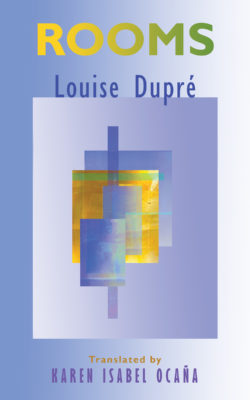Émile Nelligan’s tale is a tragic one. Born in Montreal in 1879, he shone briefly as an innovative French Canadian poet of his time, before he suffered a major mental breakdown and was institutionalized for the rest of his life at the unseasonable age of nineteen. A poet in his own right, Marc Di Saverio has translated a selection of Nelligan’s poems and presents them within a more contemporary discourse of mental health, situating Nelligan as a ground-breaking creative mind, “one of the first poets to write openly about suicide, neurosis, and psychological breakdown.” Di Saverio’s afterword (haplessly lacking in copy-editing) successfully contextualizes Nelligan’s life and outlines the personal relevance of these poems for him – Di Saverio’s father also loves these poems, and father and son collaborated on and discussed the direction the translation would take. Considering this personal motivation, Ship of Gold reads very much as Di Saverio’s Nelligan, a translation driven by self-identification and a level of admiration akin to inspiration.

Ship of Gold
The Essential Poems of Émile Nelligan
Émile Nelligan
Translated by Marc Di Saverio
Signal Editions
$19.95
paper
64pp
9781550654837
[spacer height=”20px”]
The languorous sensuality of Louise Dupré’s Rooms – here gorgeously translated from the original French by Karen Isabel Ocaña – provides an introspective, meditative reading experience, absorbing the reader into the misleading simplicity of profound perceptiveness. The book is divided into a series of long prose poems – or rooms, with titles such as “First Antechamber,” “Tourist Room,” and “Colour Room” – each with smaller, often numbered, subsections. Occasionally, a poem concludes with a black rectangle, reversing the standard black print on white paper to white words on black; these rectangles function as formal visualizations of rooms, also including the only instances in this book of lineated poetry, a slackening of justified paragraphs into verse, a letting go, a seduction into poetry: “on black ground words / expose themselves.”

Rooms
Louise Dupré
Translated by Karen Isabel Ocaña
Guernica Editions
$20
paper
86pp
9781771832137
Finally, it is with an empowering attentiveness that the characters in these poems allow themselves to perceive their own lives and to engage with their desires; these are women suffused with self-love and the drive towards self-care and creativity. Tragically, this is as much a radical statement today as it was in 1986 when Dupré’s Chambres first appeared. mRb






0 Comments